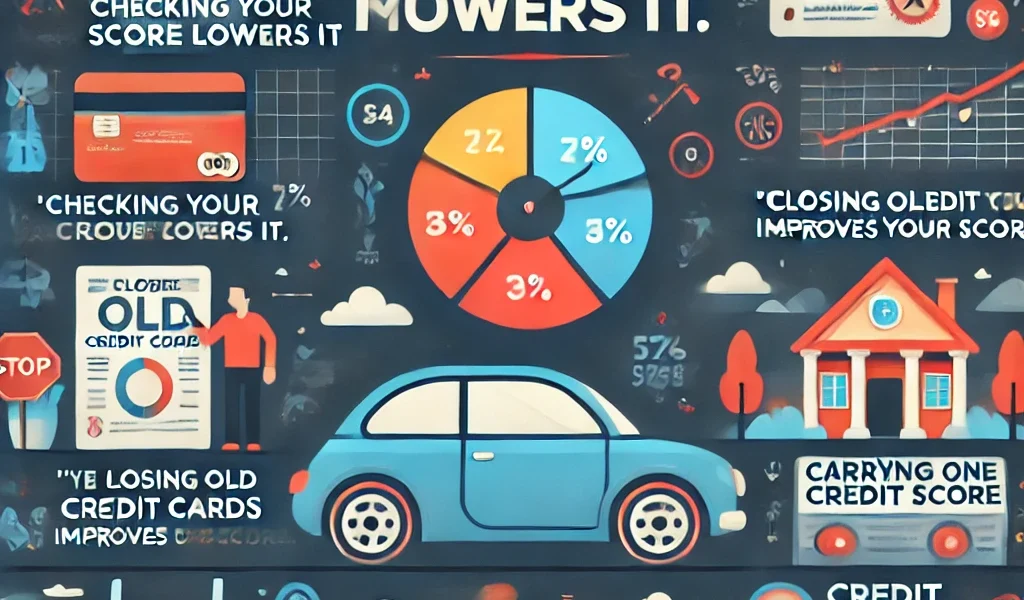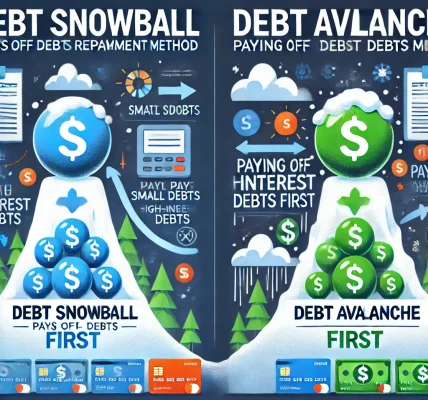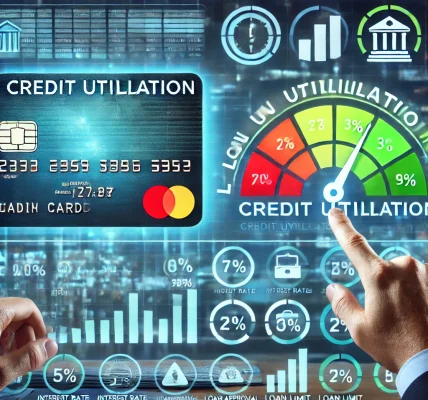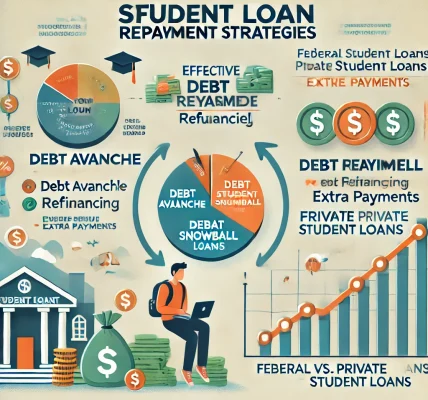A good credit score is essential for securing loans, getting favorable interest rates, and even landing certain jobs. However, many misconceptions about credit scores persist, leading people to make financial decisions that may hurt their creditworthiness. This guide will debunk common credit score myths so you can make informed decisions and avoid unnecessary financial setbacks.
Why Understanding Credit Score Myths is Important
Believing false information about credit scores can lead to costly mistakes, such as:
- Paying higher interest rates on loans
- Struggling to get credit approvals
- Mismanaging debt due to misinformation
By separating fact from fiction, you can build and maintain a strong credit score and achieve greater financial stability.
Myth #1: Checking Your Credit Score Lowers It
🔹 The Truth: Checking your own credit score (a soft inquiry) does not impact your score.
Many people avoid checking their credit reports out of fear that it will harm their score. However, self-checks are considered soft inquiries, which do not affect your credit. Lenders, on the other hand, perform hard inquiries, which can temporarily lower your score.
💡 Tip: Regularly check your credit report to monitor for errors and fraudulent activities.
Myth #2: You Only Have One Credit Score
🔹 The Truth: You have multiple credit scores based on different scoring models and bureaus.
There are several credit scoring models, including FICO and VantageScore, and each credit bureau (Experian, Equifax, and TransUnion) may have slightly different information about your credit history.
💡 Tip: Since different lenders use different scoring models, it’s important to maintain good credit habits across the board.
Myth #3: Closing Old Credit Cards Will Improve Your Score
🔹 The Truth: Closing old credit cards can actually hurt your credit score.
Closing a credit card reduces your credit history length and increases your credit utilization ratio, both of which can lower your score. Instead of closing an old account, consider keeping it open and using it occasionally for small purchases.
💡 Tip: Keep old credit accounts open and active to maintain a long credit history.
Myth #4: Paying Off Debt Erases It from Your Credit Report
🔹 The Truth: Paid-off debts can still remain on your credit report for up to 7 years.
While paying off debt is beneficial, past delinquencies or late payments may still appear on your report. However, over time, their impact lessens as you build positive credit history.
💡 Tip: Continue making on-time payments to strengthen your credit profile over time.
Myth #5: A Higher Income Means a Higher Credit Score
🔹 The Truth: Your income does not directly impact your credit score.
Credit scores are based on your credit history, not your earnings. While a higher income can help you manage debt, lenders focus more on your credit utilization, payment history, and length of credit history.
💡 Tip: Regardless of your income, always make timely payments and keep debt levels low.
Myth #6: Carrying a Balance on Your Credit Card Improves Your Score
🔹 The Truth: Carrying a balance does not help your score; it only increases interest payments.
Some believe that carrying a balance shows responsible credit use, but in reality, paying off your balance in full each month is the best way to build good credit without paying unnecessary interest.
💡 Tip: Pay your credit card balance in full to avoid interest and improve your score.
Myth #7: All Debts Affect Your Credit Score Equally
🔹 The Truth: Different types of debt impact your score in different ways.
Credit cards (revolving credit) have a greater effect on your credit utilization ratio compared to installment loans (mortgages, auto loans). Having a mix of credit types can actually help your score.
💡 Tip: Maintain a healthy mix of credit while managing debts responsibly.
Myth #8: Making More Credit Card Payments Improves Your Score Faster
🔹 The Truth: The timing and amount of payments matter more than frequency.
While multiple payments can reduce your credit utilization in a given month, your payment history (whether you pay on time) and overall debt levels are the primary factors affecting your score.
💡 Tip: Make at least the minimum payment on time each month to protect your credit score.
Myth #9: You Don’t Need to Worry About Your Credit Score If You Don’t Plan to Borrow
🔹 The Truth: A good credit score affects more than just borrowing.
Landlords, insurance companies, and even employers may check your credit score before approving applications. A poor score could lead to higher insurance rates, rental rejections, or missed job opportunities.
💡 Tip: Maintain a good credit score even if you don’t plan to borrow in the near future.
Myth #10: Bankruptcy Permanently Ruins Your Credit Score
🔹 The Truth: While bankruptcy significantly impacts your credit score, it is not permanent.
Bankruptcy remains on your credit report for 7-10 years, but you can start rebuilding your credit soon after by making responsible financial decisions.
💡 Tip: If you’ve filed for bankruptcy, consider using a secured credit card or small installment loan to rebuild your credit over time.
Final Thoughts: Don’t Let Credit Score Myths Cost You Money
Understanding how credit scores work is crucial to making smart financial decisions. By debunking these myths, you can: ✅ Make informed choices about credit usage ✅ Avoid unnecessary mistakes that harm your score ✅ Secure better financial opportunities with a strong credit profile
Key Takeaways:
- Check your credit score regularly—it won’t hurt your score.
- Keep old credit accounts open to maintain a long credit history.
- Pay off balances in full rather than carrying debt.
- Maintain a healthy mix of credit for a balanced credit profile.
- Your income doesn’t impact your score—your credit behavior does.




